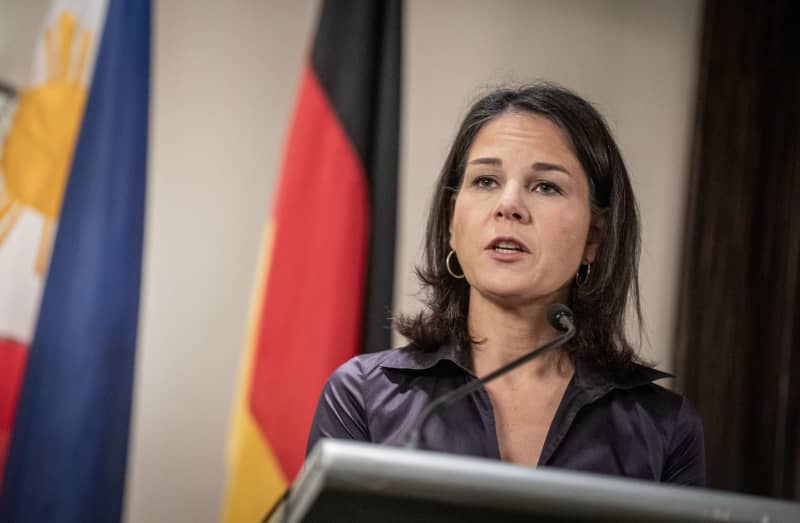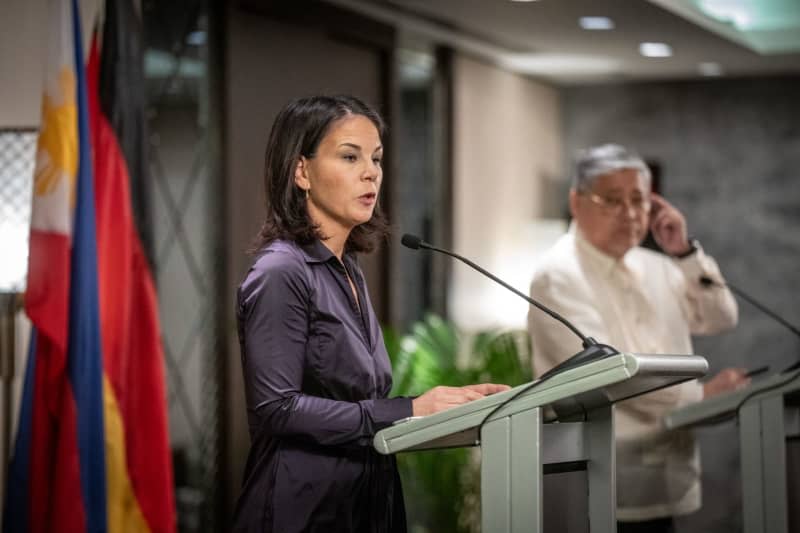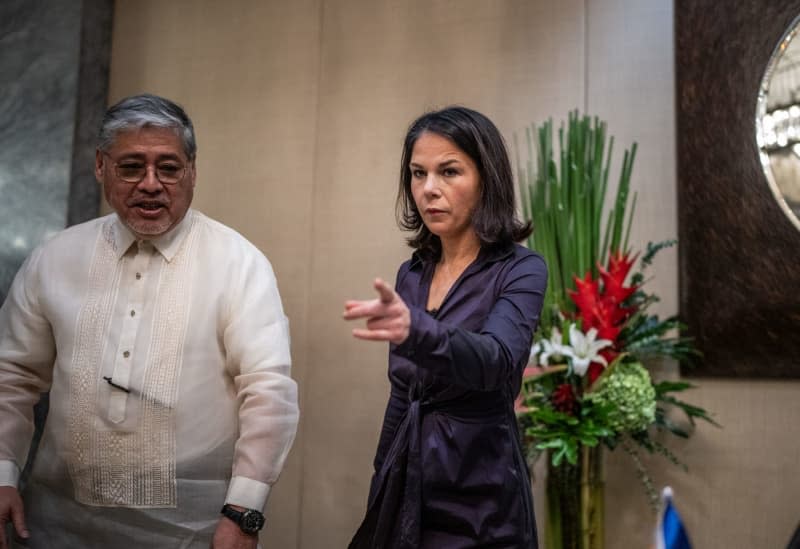Germany's Baerbock: S China Sea tensions and potential crisis vex EU

- Oops!Something went wrong.Please try again later.
- Oops!Something went wrong.Please try again later.
German Foreign Minister Annalena Baerbock said on Thursday the European Union was concerned about rising tensions in the South China Sea, stressing the need to avoid another crisis in the world.
Baerbock, the first German foreign minister to visit the Philippines in a decade, said preventing a crisis in the region was a priority for the EU.
“I have just come from the Middle East, where the situation continues to be extremely dangerous, and the risk that one more spark could set the whole region ablaze still exists,” she said in a press conference after meeting her counterpart, Philippine Foreign Secretary Enrique Manalo.
“I am saying this because in your region, tensions are rising too,” she added. “The wind is literally sweeping more roughly across the South China Sea, and that in the middle of one of the world's most dynamic economic regions.”
Baerbock said the recent incidents in the South China Sea where the Chinese coastguard used lasers and water cannon on Philippine resupply vessels “are also a concern for us in Europe, even though we are thousands of kilometres away.”
“I think we all agree that the world doesn’t need another crisis,” she said. “There are too many crises at once. We all hope that after Covid, we will work closely together ... Unfortunately, the last year ended differently.”
“In addition to the Russian war on Ukraine, we now have the war in the Middle East. So therefore for us, crisis prevention everywhere in the world, but especially here in the region is one of our top priorities,” she added.
In stressing the need to boost bilateral and regional cooperation in keeping peace and order in the South China Sea, Baerbock said, “Making clear that the compliance with international law is the best guarantee for every state in the world to be protected.”
International law “is the best insurance for smaller countries,” she added.
Manalo thanked Baerbock “for Germany’s unflinching support for international law” including two pillars of the Philippines’ position on the South China Sea dispute: the United Nations Convention on the Law of the Sea and the 2016 arbitral tribunal ruling against China’s wide claims over the area.
“Germany is a valuable partner with the Philippines not only in bilateral terms, but also in regional and international,” he said.
“I think we really do a great job in convincing the rest of the world on the importance that we should attach to international law because that is the way we should proceed, and in fact, the only way to proceed if we are to resolve any disputes or tensions in a peaceful and democratic manner,” he added.
China's Foreign Ministry said countries outside the region had no right to interfere in the affairs of China and relevant states in the South China Sea.
China is prepared to resolve disagreements through dialogue, spokeswoman Mao Ning said on Thursday. However, Beijing would defend its territorial sovereignty, she added.
After her meeting with Manalo, Baerbock also met Philippine President Ferdinand Marcos Jr, who announced that he plans to visit Germany in March.
She then visited the Philippine coastguard, where she was expected to reiterate Germany’s commitment to providing additional training and support for maritime security.
China, which claims almost the entire South China Sea, has taken increasingly aggressive actions in the area in recent years. Vietnam, Malaysia, Brunei and Taiwan also have claims to the 3.5-million-square-kilometre sea area, which is believed to be rich in natural resources.
In December, Manila accused the Chinese coastguard of firing water cannon at two Philippine supply ships and ramming them. Beijing rejected the accusations.
The area of widely scattered reefs and islands to the west of the Philippines and far south of China has been the subject of dispute between the two countries for decades.
China has ignored a 2016 ruling by an international arbitration court that it has no legal or historical basis for its expansive claims.
In addition to geopolitical issues, the dispute is about fishing grounds, raw materials such as oil and natural gas, and the safety of sea routes.
Baerbock and Manalo also vowed to boost cooperation on skilled labour, climate change and defence. Baerbock was also scheduled to visit a technical centre where mechatronic engineers are trained.
Germany already has a bilateral deal in which some 2,500 nurses have been recruited from the Philippines since 2013.




